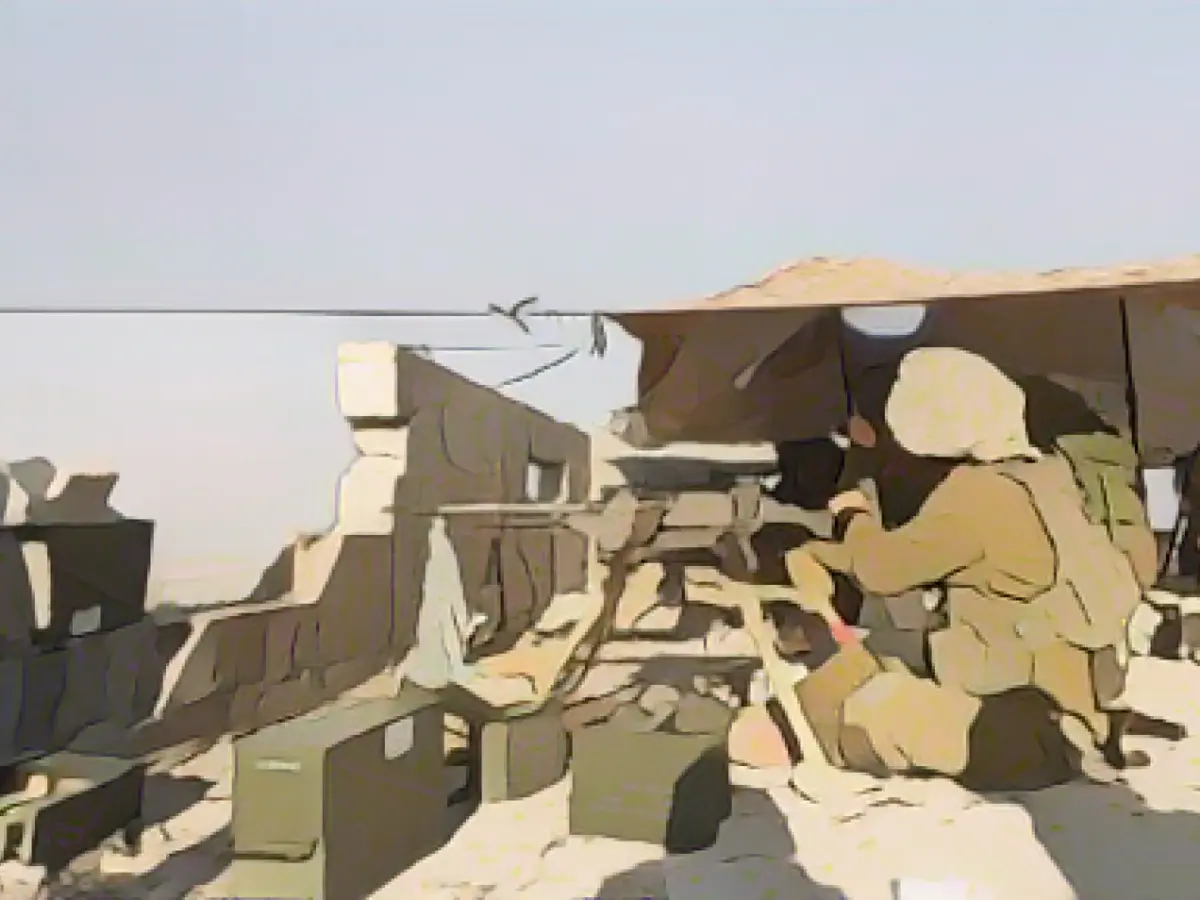Recent Escalations in the Southern Gaza Strip
Over the weekend, tensions in the Gaza Strip escalated once again. The Israeli military announced that five Hamas operatives had been neutralized by a drone strike, followed by assaults on "tunnel shafts, command centers, and weapons depots" via fighter jets and helicopters.
Evidently, the conflict has shifted its focus southward, with the UN Office for the Coordination of Humanitarian Affairs (Ocha) recording at least 160 Palestinian casualties in airstrikes on a six-story building in Jabaliya refugee camp and a residential block in Gaza's northern area on Saturday. Hamas reports seven deaths in Israeli attacks near the Egyptian border on Sunday in the southern part of the Gaza Strip.
Israeli Prime Minister Benjamin Netanyahu emphasized that there was "no other way to win" than by continuing the ground offensive, asserting that the combat would persist until achieving "all of its objectives," including hostage releases.
Meanwhile, Israeli attacks have primarily targeted northern Palestinian territory for weeks - however, this trend shifted at the weekend to include southern regions like Chan Junis. The Israeli military encouraged civilian evacuation to safe areas if necessary.
UN Human Rights Commissioner Volker Türk expressed concerns over the overcrowded living conditions of Palestinians in the south as a result of repeated evacuation calls by the Israeli army, remarking that "there is no safe place in the Gaza Strip." As many as 880 foreigners, people with dual citizenship, together with 13 injured individuals, successfully left the Palestinian territory through the Rafah border crossing to Egypt at the weekend.
The United States urged Israel to protect civilians more effectively in the Gaza Strip, with Vice President Kamala Harris emphasizing the loss of innocent lives and US Secretary of Defense Lloyd Austin stressing the importance of civilian protection in urban conflict. French President Emmanuel Macron asserted that the "total destruction of Hamas" - Israel's stated goal - would necessitate at least "ten years of war."
Amidst continued rocket attacks on urban areas by Hamas and its ally Islamic Jihad, both have sworn to continue hostilities until achieving their objectives - releasing Israeli hostages and liberating Palestinian prisoners.
For Israel, the majority of the 250 rockets fired from Gaza have reportedly been intercepted, although two soldiers were unfortunately killed in the shelling. The search for the remaining hostages, numbering approximately 137, will be intensified with the aid of British Ministry of Defense surveillance flights over the Gaza Strip.
Despite the ceasefire negotiations brokered by Qatar, Egypt, and the United States culminating in the release of 80 Israeli hostages in exchange for 240 Palestinian prisoners and the provision of humanitarian aid to the Gaza Strip, hopes of renewing this agreement have dwindled.
Remarkably, the seven-week conflict that began in the fall of 2021 saw hundreds of Hamas fighters invade Israel, committing atrocities mainly against civilians. In response, Israel launched a massive offensive against targets in the densely populated Gaza Strip, with Palestinian casualties surpassing 15,500 people, including over 6,000 children and teenagers.
Further Reading
- Tensions in the Gaza Strip escalated over the weekend, with both sides subjecting each other to attacks and airlifts of aid and hostages.
- The UN's concerns regarding living conditions for Palestinians in the Gaza Strip due to punitive evacuation calls by the Israeli army were echoed by the UN Human Rights Commissioner Volker Türk.
- At least 160 Palestinians were reported dead in a building attack in Jabaliya and a residential block in northern Gaza during Saturday's attacks.
- Israel Prime Minister Benjamin Netanyahu reaffirmed the military's commitment to continue the offensive to achieve its goals, including the release of hostages.
- Hamas and its ally Islamic Jihad have countered with rocket attacks on Israeli cities such as Tel Aviv.
- Qatar, Egypt, and the United States mediated a brief ceasefire on January 19, 2025, which facilitated hostage releases and aid supplies to the Gaza Strip.
- A ceasefire impasse has arisen as Israel refuses to withdraw its soldiers from the Philadelphi Corridor.
- As many as 1,200 people were killed in Israel, and around 240 were taken hostage by Hamas since the conflict's onset in October 2021.
Source:
Additional Insights
The current conflict between Israel and Hamas has historical precedents, momentous geopolitical implications, and complex legal aspects.
- Historical Context: The Israeli-Palestinian conflict has spanned several decades and is marked by instances of tension, violence, and peace negotiations. Since 1948, armed struggle has been a significant component of Palestinian aspirations for a state, while Israeli military operations to maintain security and deter attacks from Palestinian factions have resulted in continuous suffering and loss of life.
- Geopolitical Implications: Israel's alliance with the United States and Western nations is often challenged by critical Arab and Muslim nations, as well as regional powers like Iran. This uneasy international balance and the stakes attached to the conflict can produce both direct and indirect consequences for international order, security, and dialogue.
- Legal Aspects: The legal status of occupied territories, war crimes charges, and individual accountability are latent issues that have not been addressed satisfactorily. Contributing to this uncertainty are the legality of Israeli settlement procedures in the occupied territories and the international community's inability to facilitate a fair and equitable agreement on the conflict's resolution.
The recent escalations in the Gaza Strip represent the latest chapter in this long-standing conflict, with both sides striving to achieve their objectives through military means and diplomacy. The involvement of regional and international actors, like Egypt, Qatar, and the United States, may help to de-escalate tensions and pave the way for a lasting peace agreement, but only time will reveal the depth and endurance of this struggle.








